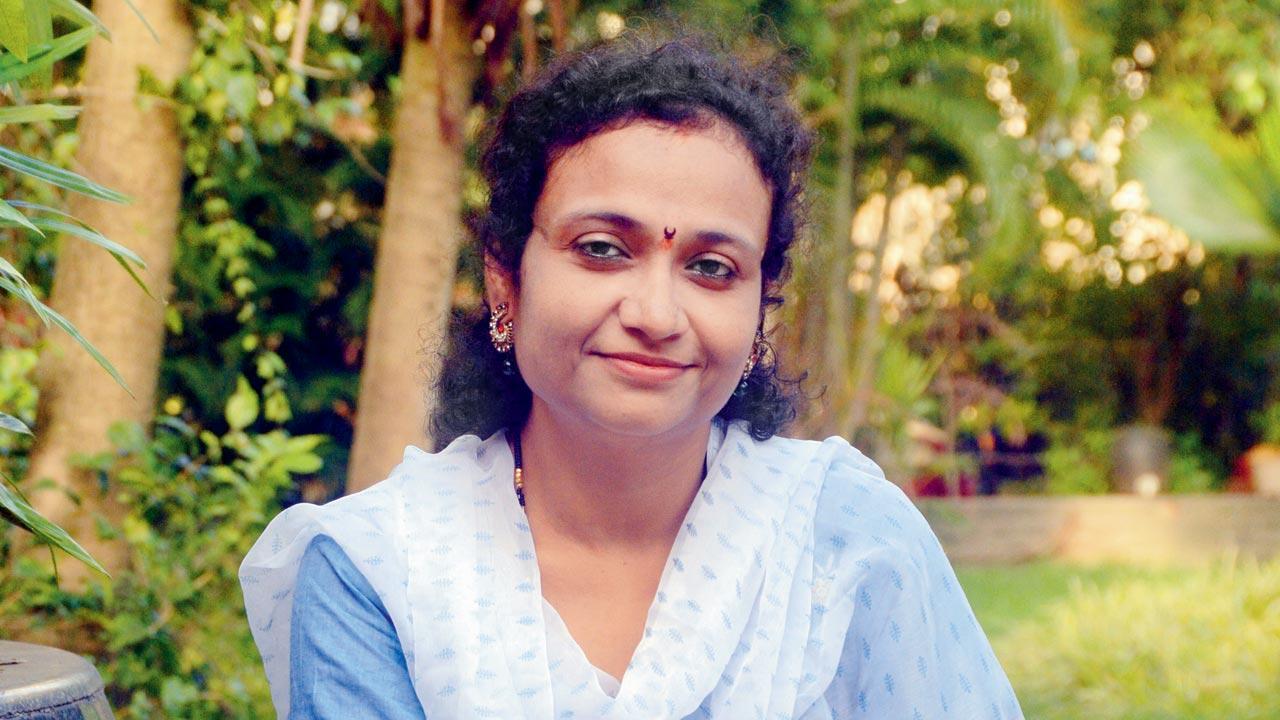According to research by the Copenhagen University Hospital, women are less likely than men to survive a heart attack. A homemaker from Kalyan tells us how she turned her life around after one

Kalyan-resident Gayatri Kulkarni was 35-years-old and weighed 76 kg when she suffered a heart attack. Post angioplasty, she set out to lose the extra weight and made two 20-minute walks an important part of her daily routine. Pic/Satej Shinde
October 20, 2016. I remember the day clearly; It would have been like any other day, except that it wasn’t. I packed my husband and son’s dabba, sent them off, finished household chores, tutored a Class X student in the afternoon, brought my son back from school and prepared dinner. Around 8 pm, I felt a strong pain in my chest, as if something was piercing through the centre. I assumed it to be heartburn, something that occurred repeatedly after I was diagnosed with diabetes a year ago and was given medication to keep it in control. There were no other symptoms such as sweating, fatigue or tightness in my chest; I popped an antacid. When that didn’t bring relief, I went to see the neighbourhood doctor. He checked my BP. Everything seemed normal so he too assumed it was acidity. I was asked not to worry.
ADVERTISEMENT
At 1.30 am, I couldn’t bear it anymore. My husband and I decided to go to a hospital, and chose the one nearby because we had to leave our then six-year-old son home. Unfortunately, the hospital didn’t have a cath lab [catheterisation lab where procedures such as angiogram, angioplasty and implantation of pacemakers are carried out], something we later regretted. Instead of MBBS and MDs, this hospital had doctors with BAMS [Bachelor of Ayurvedic Medicine and Surgery], who weren’t equipped to handle critical emergency cases. They did an ECG, which came out normal. At around 5 am, I threw up and was diagnosed to have had a heart attack. The doctors started thrombolytic treatment and gave me an injection to dissolve the clot. A few hours later, they asked us to go to a hospital with a cath lab. We went to Fortis Hospital in Kalyan, and an angiography showed clots inside the main artery. I underwent angioplasty and two stents were placed inside my heart that very evening. I was in hospital for a week—four days in ICU and three days in a regular ward— leaving my son in the care of neighbours and extended family. I wasn’t scared initially, but when a heart attack was diagnosed and I found out that I would have to undergo angioplasty, I worried about my child, husband and home.
This shifted how I process things now. I was emotionally vulnerable earlier—I would overthink, cry and stress over small things. Now I try to keep my stress under control. I know it is inevitable, especially with the kind of lives we live in metro cities. While there is little that could be done about a situation, I try to take the solution-finding approach. I can’t afford to be back in the ICU; who will run my home?
And since this is my rebirth of sorts, I am also trying to make the most of it. I have a postgraduate degree in Science, and wanted to teach but couldn’t pursue it full-time. Now I know I can’t take a job that requires me to take the local train or induces excessive stress. I looked for a profession that has fixed hours and is linked to my education.
About a year ago, I enrolled in an advanced diploma course in Medical Laboratory Technology. I am just completing my internship, and then I can work as a lab assistant in a pathology lab or department of a hospital. It’s an eight-hour job, and in demand in the post-COVID era.
I can’t pinpoint the reason for the heart attack. No one in my family has a history of heart related ailments. I had diabetes but that was under control. A year earlier, I had a full-body checkup, and it looked good. Yes, I was a little overweight. I am five feet, four inches tall and weighed 76 kg then, but never led a sedentary lifestyle. I didn’t have a househelp then and I don’t have one now, so I do all the household chores. Post angioplasty, I lost 15 kg. We are vegetarian, and have always been mindful of eating less oily and spicy food. So I focused on the aspect that often gets neglected—exercise. Doctors suggested going for a walk. Sometimes I divide mine into two parts—a 20-minute walk on the way back from the pathology lab I am interning at, and the other one aligns with my son’s playtime in the evening. It has been six years since I survived a heart attack, and I still take about six pills a day. But it does not define me. I want to make the most of my second chance at life and maybe resume singing or radio jockeying, like I used to before I got married.
 Subscribe today by clicking the link and stay updated with the latest news!" Click here!
Subscribe today by clicking the link and stay updated with the latest news!" Click here!







